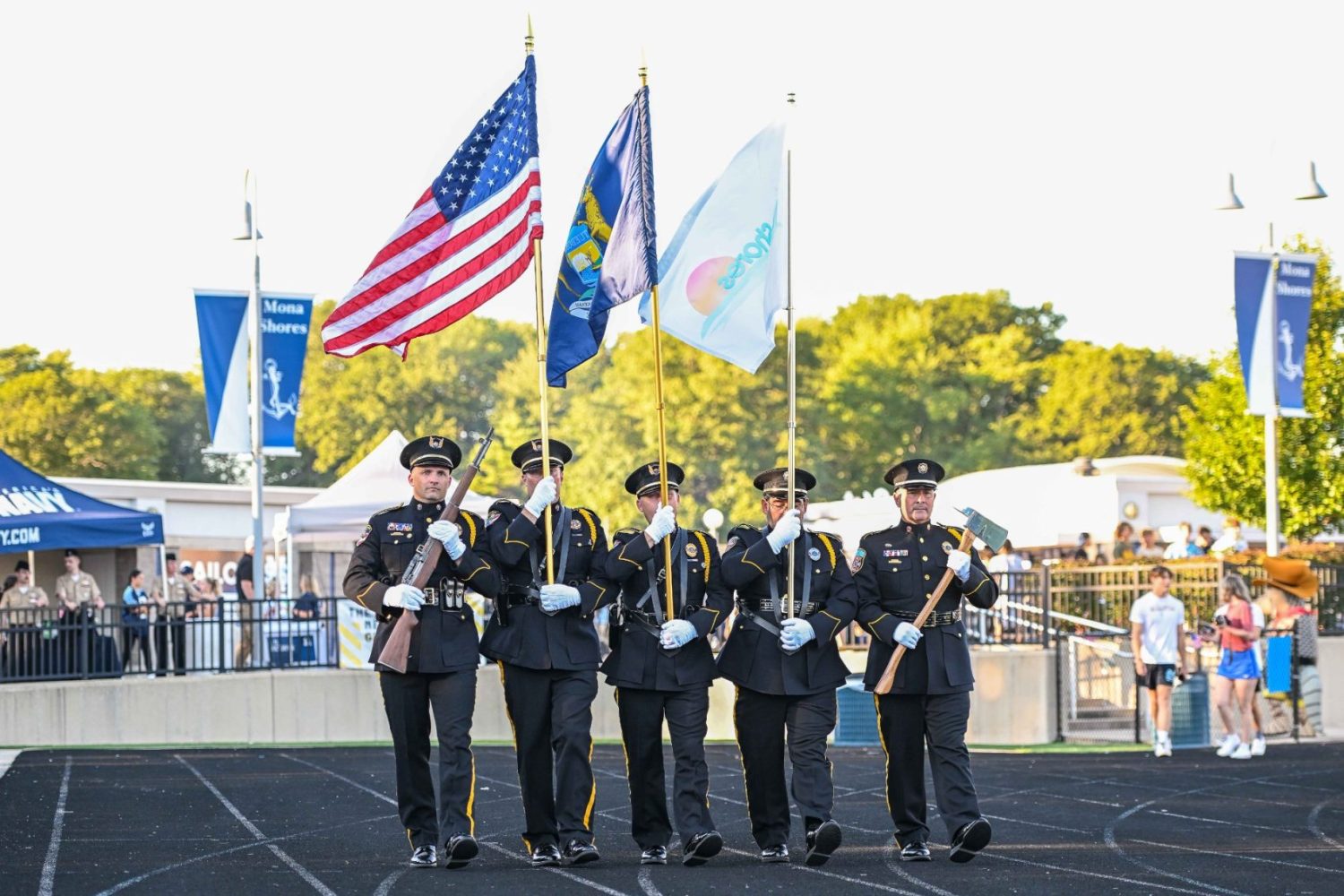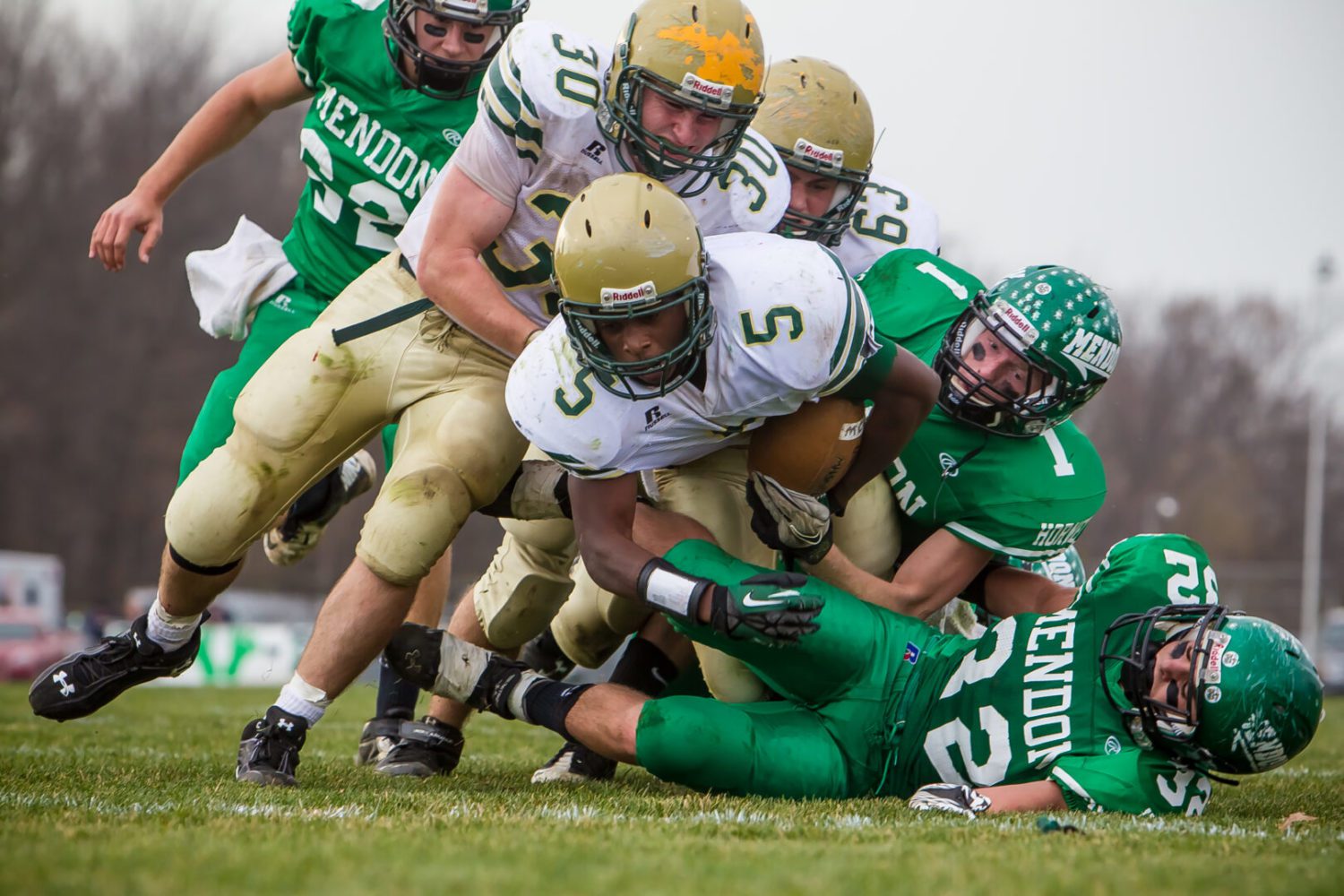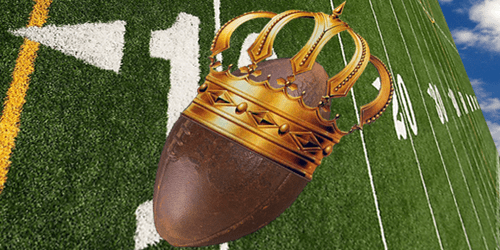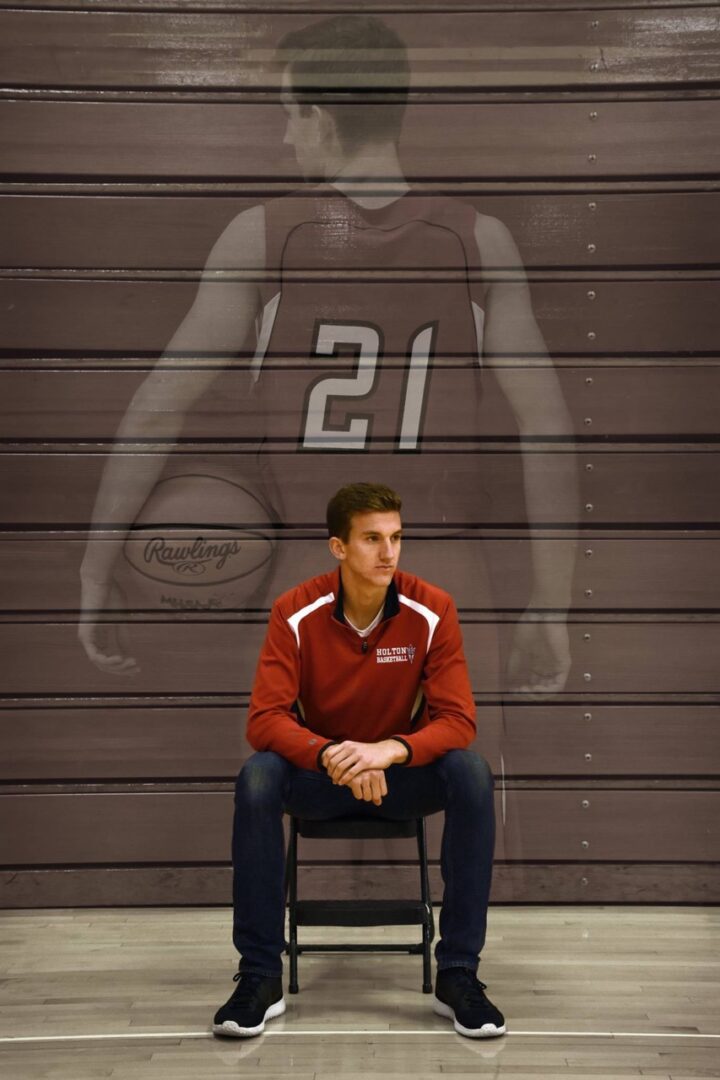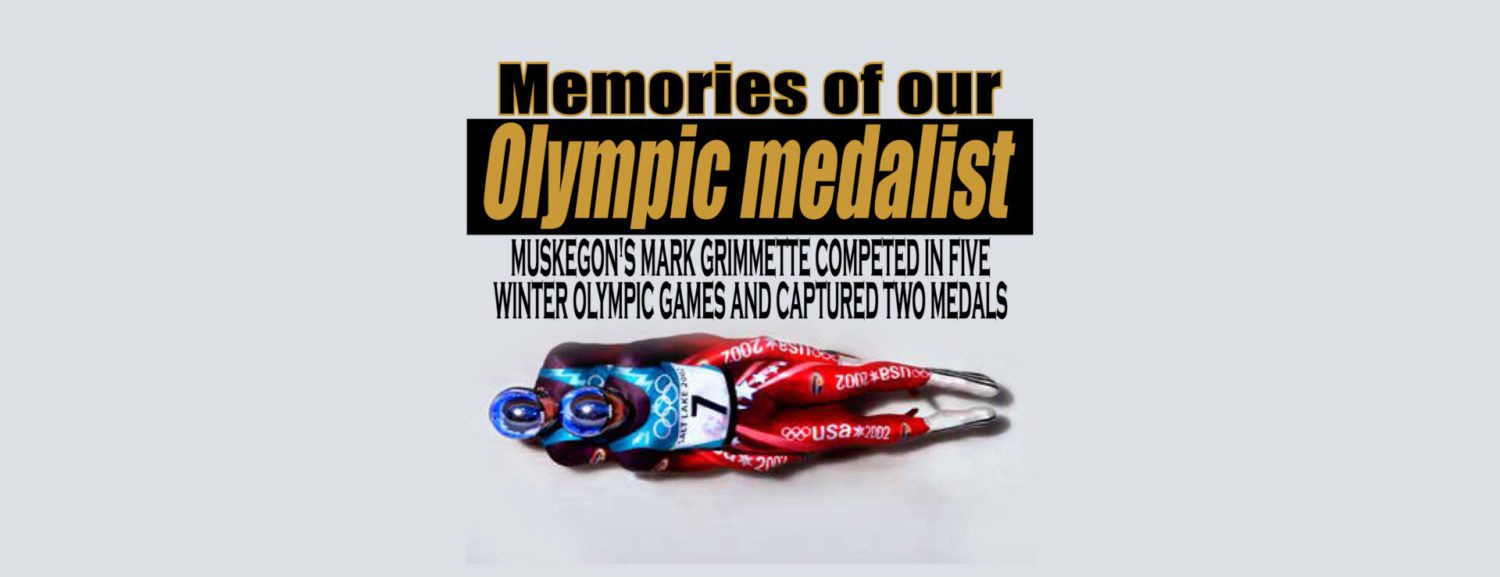By Ron Pesch
LocalSportsJournal.com
MUSKEGON–The Big Reds escaped with a close victory over the Rockets at historic Hackley on Friday. Nearly 252 months ago, they did the same. Tom Kendra tells me, via print, Reeths-Puffer nearly beat No. 2 ranked Muskegon that evening years ago. A late interception by Big Red Orlando Walton preserved a 13-7 win. While I know I was present in the stands that night, I hardly recall the game.
The contest was a diversion for me – a chance at normal – as I suspect it was for many of the 4,000 in attendance that night, and for thousands of others attending games played around Michigan and beyond. Only days before, life in America changed.
I had been installing a new computer system at work that Tuesday morning when planes hit the towers at the World Trade Center in New York City. An onsite consultant flagged me down and called me over to the company owner’s office that morning. The television was on, as it often was, tuned to CNN. We stood in amazement, like many, trying to make sense of what had just happened. A plane had flown into the north tower of the World Trade Center in New York City. Was it an accident? Then seconds later, we watched the second plane hit. Next came news of the attack on the Pentagon.
Most anyone of a certain age can tell you exactly where they were when they learned about Pearl Harbor or President John F. Kennedy’s assassination. And many people my age can tell you where they were when they learned of 9/11.
My sons were age seven and age four. I prayed that years would pass before they learned of the evil that lurked in the hearts of some individuals.
For a week, much of the sports world was lost. Tuesday’s television sports coverage, in many instances, went dark, switching instead to feeds about the only thing that mattered at the moment. Major League Baseball, in the final 2 ½ weeks of the season and faced with scheduled mid-week contests, was forced to make an immediate decision. The sport, riding a massive wave of enthusiasm and hero-worship sparked by recent record performances by Sammy Sosa and Mark McGwire, and now focused on the “achievements” of Barry Bonds and Roger Clemens, was still a couple of years away from testing for performance-enhancing drugs. Commissioner Bud Selig had little choice but to cancel games. Their rescheduling would extend the World Series into November.
Despite pressure by some owners to play, NFL player union representatives voted to cancel games scheduled for that upcoming weekend. That decision, and concerns about lost revenue, would ultimately force the league to push everything forward by a week, including the move of the Super Bowl into February for the first time ever.
The NFL’s action would guide others.
Initially, the decision on whether to play major college-level football games was left up to the individual schools. That changed.
“The Swamp was silent Saturday,” noted the Associated Press. “So were the Big House, the Orange Bowl and the Rose Bowl. Following Tuesday’s terrorist attacks on the World Trade Center and the Pentagon, big-time college football called off its games this weekend, falling in line with the NFL, major league baseball and most other sports.”
The NHL, with headquarters in NYC, followed suit, canceling exhibition games, then worked to create charitable efforts to support families of fallen first responders – the country’s newly recognized heroes.
Major League Soccer canceled the remainder of their regular season. US Davis Cup tennis matches were postponed.
The Professional Golfers’ Association canceled the $5 million World Golf Championship in St. Louis and other events. With air travel suspended, the Ryder Cup, between teams from Europe and the United States, played every two years and scheduled for the end of September, was rescheduled from 2001 to 2002 because of the attacks.
Locally, high school sporting events continued across much of the nation. They served as the first steps toward routine and a canvas for grieving and camaraderie for kids and adults. In Michigan, girls played tennis and basketball. Boys played soccer and football.
The importance and sacrifice of first responders, never more on meaningful display than at Ground Zero during 9/11, took on new significance in the days and weeks that followed. Moments of silence, touching musical performances, candlelight memorial services, straightforward 9/11 fundraising, and outward displays of unity, patriotism and Red, White, and Blue spread across the country. But so too were instances of misplaced perception, suspicion, and ignorance.
A suggestion by the No. 2 guy in the public relations of the San Diego Padres suggested that the team insert “God Bless America” into the seventh inning stretch, and soon after, a new tradition was born in MLB ballparks. Years later, it remains in select stadiums. Black armbands, helmet decals, patches, special uniform designs, and homage contests immediately became part of sports. They continue today, as do new policies, procedures, and enhanced security measures, affecting everything from purchasing tickets, traveling to contests, and entering and moving about stadiums for players and fans.
While cleaning a closet shelf recently, my youngest son came across front page headlines from Muskegon Chronicle from that week. I had stashed them nearly 21 years ago. As a relatively new parent, I hid them from my kids. As a historian, I kept them as reminders of a moment in time. Two plus decades later, they stand as symbols of innocence lost.
(The feature photo is courtesy of LSJ photographer Eric Sturr)


